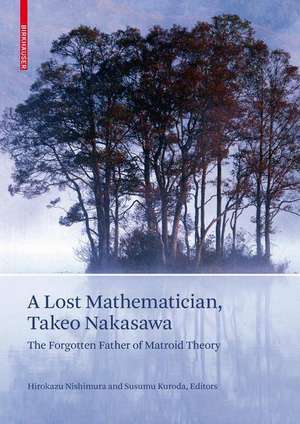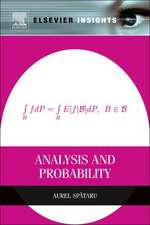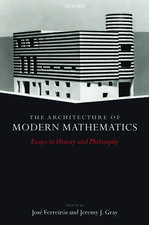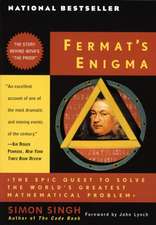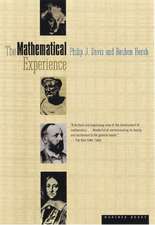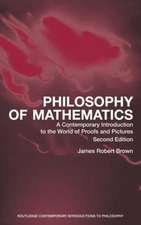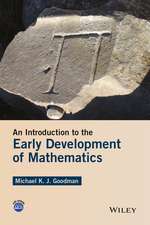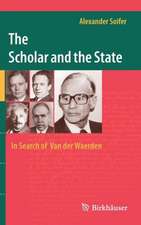A Lost Mathematician, Takeo Nakasawa: The Forgotten Father of Matroid Theory
Editat de Hirokazu Nishimura, Susumu Kurodaen Limba Engleză Hardback – 16 ian 2009
Preț: 395.47 lei
Nou
Puncte Express: 593
Preț estimativ în valută:
75.67€ • 79.01$ • 62.49£
75.67€ • 79.01$ • 62.49£
Carte tipărită la comandă
Livrare economică 15-29 aprilie
Preluare comenzi: 021 569.72.76
Specificații
ISBN-13: 9783764385729
ISBN-10: 3764385723
Pagini: 248
Ilustrații: XII, 236 p.
Dimensiuni: 170 x 244 x 19 mm
Greutate: 0.59 kg
Ediția:2009
Editura: Birkhäuser Basel
Colecția Birkhäuser
Locul publicării:Basel, Switzerland
ISBN-10: 3764385723
Pagini: 248
Ilustrații: XII, 236 p.
Dimensiuni: 170 x 244 x 19 mm
Greutate: 0.59 kg
Ediția:2009
Editura: Birkhäuser Basel
Colecția Birkhäuser
Locul publicării:Basel, Switzerland
Public țintă
ResearchCuprins
The Life of Takeo Nakasawa.- The Life of Takeo Nakasawa.- South Manchurian Railway Company (1906–1945).- South Manchurian Railway Company (1906–1945).- The Road to the Fifteen Years War (1931–1945).- The Road to the Fifteen Years War (1931–1945).- The Fifteen Years War (1931–1945).- The Fifteen Years War (1931–1945).- Mathematics around Takeo Nakasawa.- Mathematics around Takeo Nakasawa.- Chronological Tables.- Chronological Tables.- Works of Takeo Nakasawa.- Zur Axiomatik der linearen Abhängigkeit. I.- Zur Axiomatik der linearen Abhängigkeit. II.- Zur Axiomatik der linearen Abhängigkeit. III.- Über die Abbildungskette vom Projektionsspektrum.- On Axiomatics of Linear Dependence I: The B-Space.- On Axiomatics of Linear Dependence. II. The B2-Space.- On Axiomatics of Linear Dependence III.- On Mapping Sequences of a Projective Spectrum.
Textul de pe ultima copertă
Matroid theory was invented in the middle of the 1930s by two mathematicians independently, namely, Hassler Whitney in the USA and Takeo Nakasawa in Japan. Whitney became famous, but Nakasawa remained anonymous until two decades ago. He left only four papers to the mathematical community, all of them written in the middle of the 1930s. It was a bad time to have lived in a country that had become as eccentric as possible. Just as Nazism became more and more flamboyant in Europe in the 1930s, Japan became more and more esoteric and fanatical in the same time period. This book explains the little that is known about Nakasawa’s personal life in a Japan that had, among other failures, lost control over its military. We do not know what forces caused him to be discharged from the Tokyo University of Arts and Sciences. His work was considered brilliant, his papers superb, if somewhat unconventional and mysterious in notation. We do know that, in the latter half of the 1930s, forced to give up his mathematical career, he chose to live as a bureaucrat in Manchuria, at that time a puppet state of Japan. He died in 1946 at Khavarovsk, at the age of 33, after one year of forced labor in Siberian and other USSR camps, without sufficient food or shelter to protect his health. This book contains his four papers in German and their English translations as well as some extended commentary on the history of Japan during those years. The book also contains 14 photos of him or his family. Although the veil of mystery surrounding Nakasawa’s life has only been partially lifted, the work presented in this book speaks eloquently of a tragic loss to the mathematical community.
Caracteristici
Gives an exact description of the origin of matroid theory First English translation of the four German papers Includes supplementary material: sn.pub/extras
